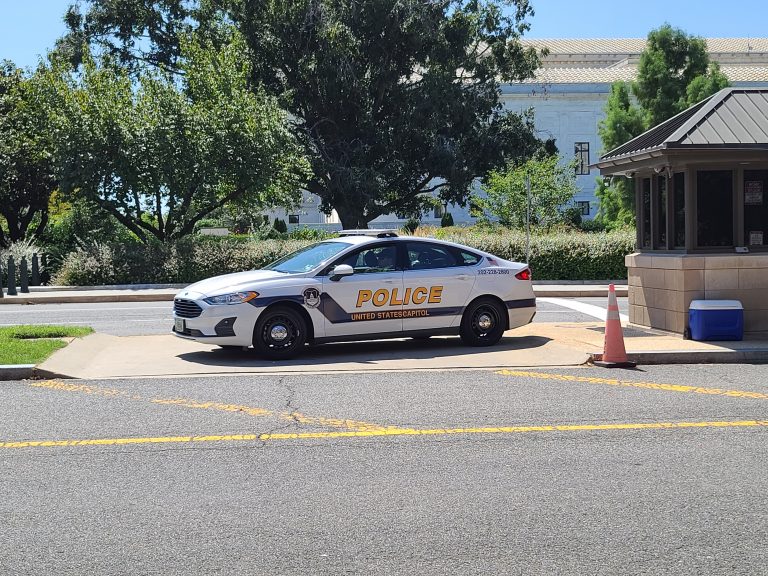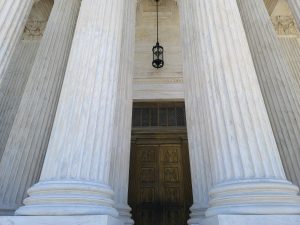Months before the Supreme Court ever handed down its landmark ruling in New York State Rifle and Pistol Association (NYSRPA) v. Bruen, criminal defense attorneys made the case for striking down New York’s restrictive gun-carry law on criminal justice reform grounds.
“New York’s licensing requirements criminalize the exercise of the fundamental Second Amendment right, with rare exception,” the Black Attorneys of Legal Aid and two New York City public defender services wrote in an amicus brief. “As a result, each year, we represent hundreds of indigent people whom New York criminally charges for exercising their right to keep and bear arms. For our clients, New York’s licensing regime renders the Second Amendment a legal fiction.”
Now that the Court has ruled and a fundamental right to bear arms in public has been firmly established, the real-world implications of the decision on the criminal justice system are starting to take shape. On Wednesday, a Superior Court judge in Sacramento County, California, threw out a case against a defendant charged with carrying a handgun without a license.
“Bruen unequivocally holds that public carry is presumptively legal,” Judge Steve White wrote in his ruling. “At the time of defendant’s arrest, California provided one legal means by which an individual could exercise their right to public carry-to get a license under section 26150. That path was unconstitutional.”
Citing another Supreme Court decision, Shuttlesworth v. City of Birmingham, Ala, Judge White said he had no choice but to dismiss the charges.
“According to Shuttlesworth, faced with an unconstitutional restriction on his constitutional right, defendant was free to engage ‘with impunity in the exercise of the right…’” he wrote. “The Court does not relish the conclusion reached here and understands its ramifications. But this result cannot be avoided in light of Bruen and Shuttlesworth and the arguments presented by the parties.”
It’s a ruling that could have enormous implications for defendants charged under various gun-control laws. It sets a clear example for defense attorneys to challenge charges and convictions secured in a pre-Bruen landscape. The most obvious of which will be for charges filed against persons for carrying without a permit in jurisdictions that simply refused to grant them in the past.
Additionally, because the Second Amendment test laid out in Bruen calls many other gun control laws into question, the same rationale could soon apply to other restrictions as they get struck down in the coming months and years.
To be clear, such a decision is not a guarantee that every judge will be persuaded by the same reasoning. Indeed the New York Times reports that several Bronx public defenders have tried to make similar arguments on behalf of their clients charged under New York’s strict gun-carry law, but to no avail.
Likewise, carrying without a permit in states with objective, shall-issue licensing standards is still likely to wind up with criminal charges that stick. The Supreme Court in Bruen held that licensing requirements were not per se unconstitutional, provided that the law granted licenses on an objective basis.
However, many of the states that have had to reformulate their laws in light of Bruen have chosen to include several subjective provisions that could prove to be unconstitutional as well. And that’s where the argument could have more success. That includes New York’s new law, which features a dubious “good moral character” requirement and an expansive definition of “sensitive places” where gun carry is a felony offense even with a permit.
Massachusetts’ carry law likewise retains a vague “suitability” standard that also seems ripe for a challenge. California, which has not yet officially replaced its carry law containing provisions ruled unconstitutional in Bruen, could also see more instances of charges being dropped in cases where carrying without a permit was the only relevant offense allegedly being committed.
With a successful result achieved in Sacramento, expect to see such arguments become increasingly common from defense attorneys across the country on behalf of clients charged with possessory offenses. While we only have one instance of success to this point, the defense that a particular gun-control law is unconstitutional in light of Bruen and thus unenforceable is one that’s likely to be used often in the near future.
It is also one that will likely require higher court guidance to fully flesh out. Judge White hinted at this fact in his ruling.
“Bruen does not define law-abiding or give any guidance on how lower courts should determine whether a weapon is carried for self-defense or for some other purpose,” he said. “The People also decline to offer a definition of these ambiguous terms, and the Legislature has not yet addressed these questions.”
He wrote out a list of key questions that still need to be answered.
“Do the criminal allegations themselves mean someone is not law-abiding?” White said. “Does carrying a concealed firearm while possibly engaged in uncharged criminal conduct mean someone is no longer law-abiding? Does a prior conviction of any kind mean someone is no longer law-abiding? What if the prior conviction is stale? How does a court determine whether a firearm in a waistband is possessed for self-defense or not? Is a firearm locked in a safe possessed for self-defense or some other purpose?”
White said he defaulted to the side of the defendants in the interim.
“Denying someone’s constitutional right by teasing through nebulous questions like these is not the Court’s role,” he wrote.
Until higher courts develop a cohesive approach or state legislatures come into closer compliance with Bruen, expect to see challenges like this continue at the trial court level.






